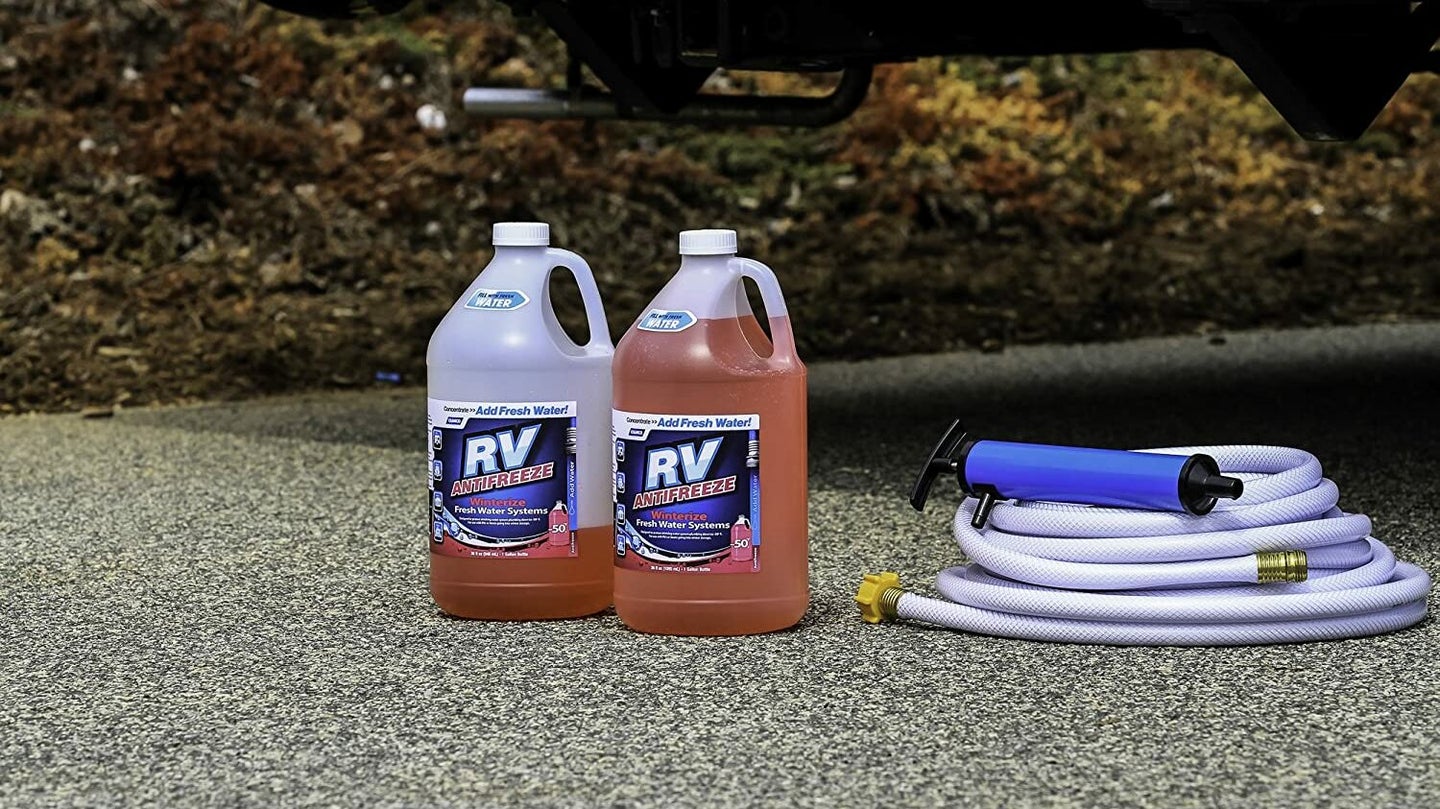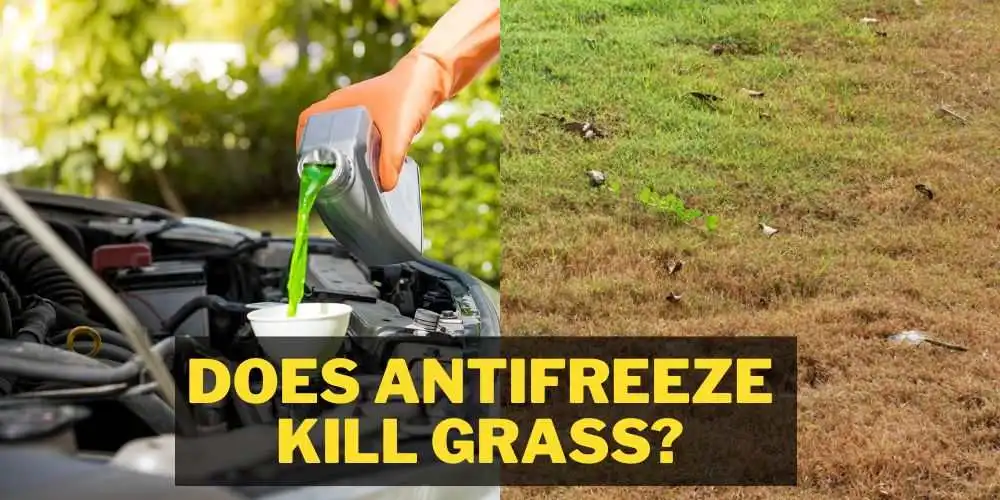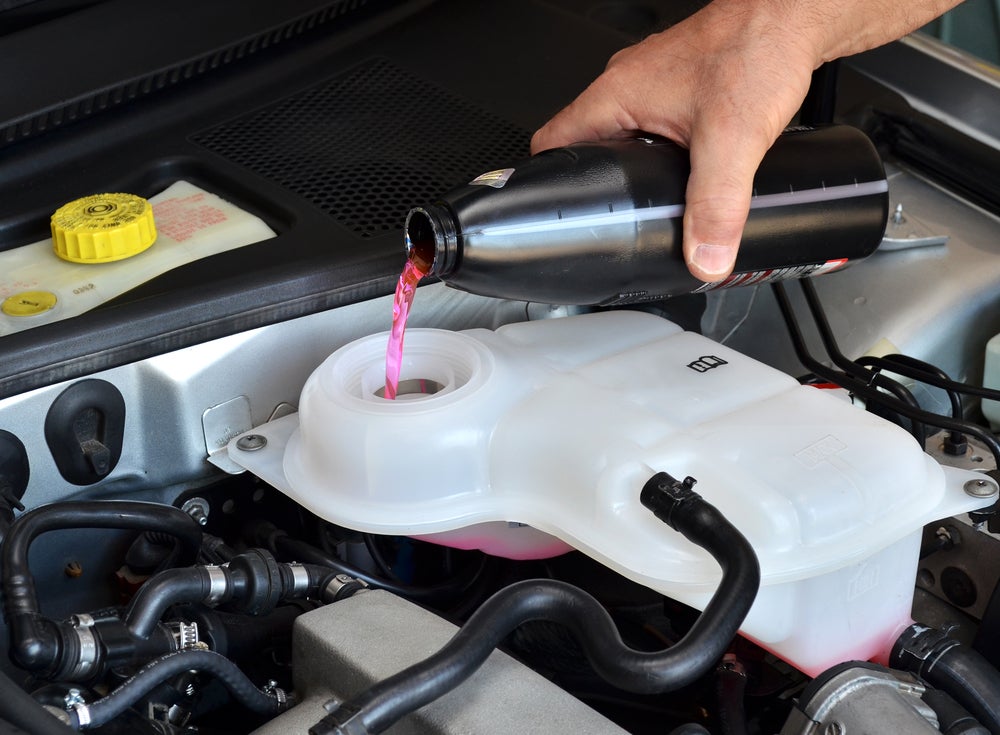Best RV Antifreeze (Review & Buying Guide) in 2021 The Drive

RVing 101 » Will Antifreeze Kill Grass? (How To Dispose of RV Antifreeze) Will Antifreeze Kill Grass? (How To Dispose of RV Antifreeze) RVing 101 / By James V. Instead of dumping it, r e-use it. If you are afraid that removing your RV antifreeze will kill your lawn, just reclaim it and put it back into its jugs.
Will RV Antifreeze Kill Grass?

Will RV Antifreeze Kill Grass? The easy answer to this is yes, in large doses. If you plan on flushing your system straight onto the ground at your home or other location, the large amount of chemical that will be dispelled from the RV will kill the grass. However, if a small amount spills onto the ground, the odds are that the grass will be fine.
Does Antifreeze Kill Grass? (Explained By Expert)

Yes, RV antifreeze can kill the grass. If RV antifreeze is in small amounts, it is non-toxic, but still, it can harm because it's a chemical. Propylene glycol RV antifreeze is less toxic to the plant and environment, but many heavy metals in it can adversely affect plants, humans, and the environment.
Will RV Antifreeze Kill Grass?

RV antifreeze is a freeze-burst-protection lubricant that shields the pipes and waterlines of your motorhome from freezing in even the most severe winter weather. And since the RV plumbing system is vulnerable to freezing, all poorly insulated or exposed pipes are in big trouble.
Does Antifreeze Kill Grass? (Explained by Expert)

Most likely, the answer is yes! RV antifreeze is still a chemical, and the longer grass is exposed to it, the more likely the grass is to be damaged. In other words, RV antifreeze kill plants, even if it is non-toxic.
Can RV Antifreeze Kill You? Mortons on the Move

I believe RV antifreeze is an alcohol based product. 2 gal in a 200 gal tank.you might spray some of it back into the old jugs but I wouldn't sweat it thinking you have to get your tank squeaky clean.JMO "Opportunity is missed by most because it is dressed in overalls and looks like work"- Thomas Edison, businessman/inventor Proverbs 27:17
Will Antifreeze Kill Grass? The Lawn Mower Guru

Yes, antifreeze will kill grass very quickly if it has propylene glycol in it. Not only that but antifreeze can even kill weeds, vines, plants, shrubs, and well-established trees. Both propylene glycol and ethylene glycol antifreeze will kill grass in certain quantities.
Do’s And Don'ts On Rv Antifreeze Disposal You Need To Know

No! It is not safe to dump RV antifreeze on the ground. Refusing to dump antifreeze in the proper spots can harm the ecosystem. Most people who own RVs like to spend plenty of time outside; destroying the ecosystem is counterproductive for outdoorsy people. The place you dump antifreeze doesn't only affect the spot that the antifreeze touches.
Will RV Antifreeze Kill Grass?

Propylene glycol RV antifreeze is a non-toxic solution safe for RV plumbing systems and holding tanks. That said, care must be taken to completely flush antifreeze and sanitize your RV's fresh water system when de-winterizing your RV. Here's a quick video explaining how to sanitize your RV's fresh water tank:
Best RV Antifreeze (Review & Buying Guide) in 2021 The Drive

Jetzt Motorcraft Angebote vergleichen und günstig online kaufen! Immer günstige Ersatzteile für ihr Auto am Start!
Can RV Antifreeze Be Diluted? + Antifreeze Ingredient Info

Yes, RV antifreeze will kill grass. This is because the main ingredient in RV antifreeze is propylene glycol, which is a toxic chemical. When this chemical comes into contact with grass, it will kill it. If you're thinking about using RV antifreeze to kill grass, think again!
Will RV Antifreeze Kill Grass?

Technically RV Antifreeze is non-toxic to animals, but like with people it only applies if it's ingested in small quantities. For animals, the quantity of RV antifreeze that is safe to digest is even smaller. Unfortunately, RV antifreeze has a sweet taste that can attract your dog or cat to it.
Best RV Antifreeze (Review & Buying Guide) in 2021 The Drive

The Propylene glycol-based antifreeze is a less-lethal and milder on grass only in its diluted form. What is the impact of antifreeze on the grass? While it's toxic to grass, ethylene glycol is not persistent in the soil since it eventually breaks down. However, it will cause the following adverse effects on the grass in high concentrations:
The 9 Best RV Antifreeze for Winterizing [2021 reviews]

It might do. This depends on the type of antifreeze and how diluted it is. Also, the volume of antifreeze spread over what square footage or yardage of turf matters too. Is RV Antifreeze Toxic to Plants? Will Antifreeze Kill Plants? Does Antifreeze Kill Plants? Plants are not invulnerable!
Can RV Antifreeze Kill You? Mortons on the Move

In most circumstances, no, RV antifreeze will not kill grass. RV antifreeze is made from propylene glycol, which is nontoxic and will be heavily diluted in an RV water system when it comes to emptying. Table of Contents Will RV Antifreeze Kill Grass? Plants and grass are delicate.
Best RV Antifreeze (Review & Buying Guide) in 2021 The Drive

Though the company may differ, RV antifreeze is typically labeled as "RV & Marine Antifreeze," and it often comes in pink color. While Dollar General does have antifreeze in stock, the products they have are not viable because they have automotive antifreeze, not RV antifreeze.